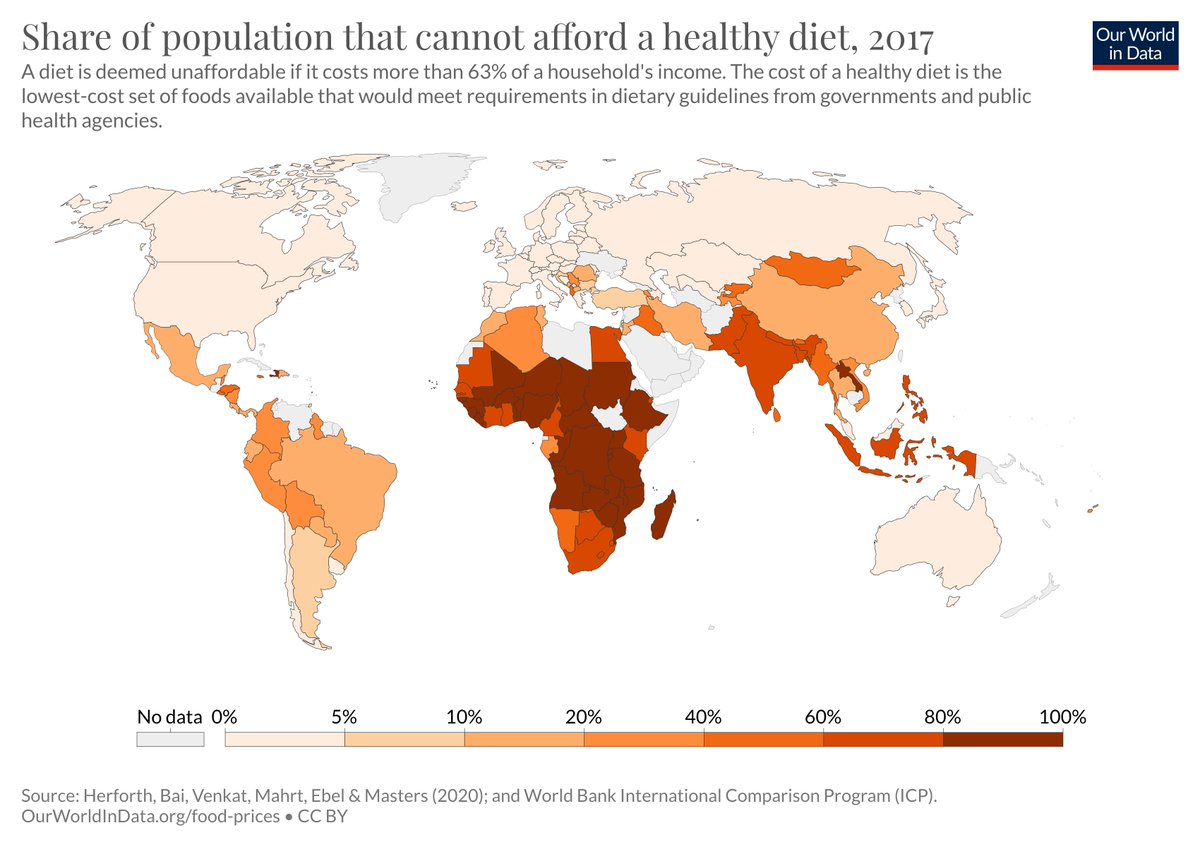Food is about more than calories: we need a wide range of nutrients, vitamins & minerals.
A healthy diet is more than 4 times the cost of a basic, calorie-sufficient one.
As a result, three billion people cannot afford a healthy diet.
My latest post: ourworldindata.org/diet-affordabi…
A healthy diet is more than 4 times the cost of a basic, calorie-sufficient one.
As a result, three billion people cannot afford a healthy diet.
My latest post: ourworldindata.org/diet-affordabi…

You can get calories in cheaply if you rely on staple foods like cereals & starchy roots.
Across the world, the cheapest calorie-sufficient diet costs about $1 per day.
Unfortunately hundreds of millions still go without.
1/
Across the world, the cheapest calorie-sufficient diet costs about $1 per day.
Unfortunately hundreds of millions still go without.
1/

'Healthy' diets that meet nutritional guidelines are much more expensive because they contain a wide variety of foods.
Costs around 4x as much in most countries.
Three billion people cannot afford this even if they spend most of their income on food.
2/
Costs around 4x as much in most countries.
Three billion people cannot afford this even if they spend most of their income on food.
2/

We can put the cost of healthy diets in perspective by putting this cost on top of the income distribution.
The blue boxes are the median income in each country. Pink line is cost of healthy diet.
In many countries, cost of a healthy diet is higher than the median income.
3/
The blue boxes are the median income in each country. Pink line is cost of healthy diet.
In many countries, cost of a healthy diet is higher than the median income.
3/

Ending hunger (in terms of calories) is essential. But this is just the first basic step towards providing a nutritious diet for all.
If a healthy diet is to be achievable for everyone we need much more growth for people at the mid-to-low end of the income distribution.
4/
If a healthy diet is to be achievable for everyone we need much more growth for people at the mid-to-low end of the income distribution.
4/
This work is based on the affordability of diets work by @wamasters & colleagues in prep for the UN FAO. You find their work here: sites.tufts.edu/foodpricesforn…
and here:
fao.org/3/cb2431en/cb2…
5/
and here:
fao.org/3/cb2431en/cb2…
5/
You can explore this dataset on diet affordability in our new Food Prices Data Explorer: ourworldindata.org/explorers/food…
/end
/end

• • •
Missing some Tweet in this thread? You can try to
force a refresh


















